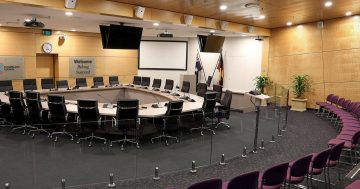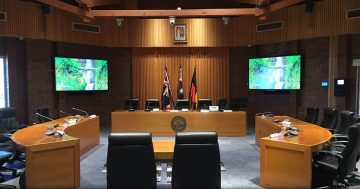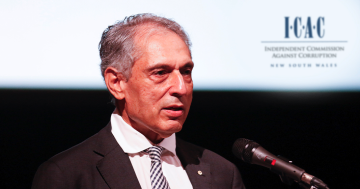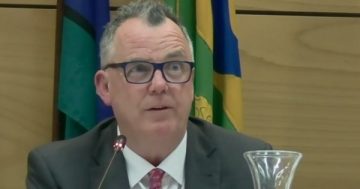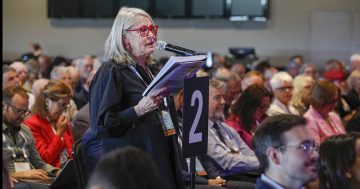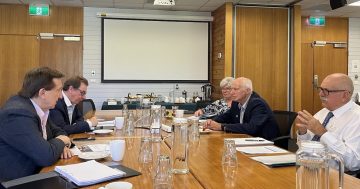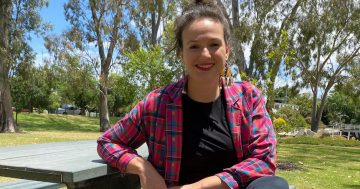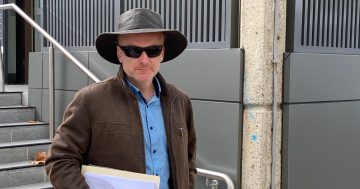
NSW Local Government Minister Ron Hoenig said he was concerned that councils’ most important decisions were increasingly being made behind closed doors in private briefings. Photo: LGNSW.
In a bid to improve transparency across local councils, the NSW Government has made proposals, including a ban on private councillor briefings, that have raised “serious questions” over the potential “for politically motivated outcomes”.
Local Government NSW (LGNSW), the sector’s peak body, recently welcomed the State Government’s review of the Councillor Conduct Framework. However, it raised concerns about several proposed changes listed in a resulting discussion paper.
Broken Hill Councillor and LGNSW president Darriea Turley AM said the local government sector “are particularly concerned about proposed reforms to confidential councillor briefings and how information will be able to be shared with councillors, as well as the composition and operation of the proposed Privileges Committee”.
The controversial proposals come shortly after local governments across the state came out in a “unanimous move” to condemn a new planning body that will bypass councils and communities on large housing developments.
As a former Mayor of Botany Bay, NSW Local Government Minister Ron Hoenig said he wanted to see all councils conducting their business in an open and public forum.
“The current Model Meeting Code has become unwieldly and is prone to drawing the general manager into political disputes which should be left to elected councillors to resolve,” he said.
“These changes are part of the government’s commitment to restoring public trust in local government which has been eroded by years of neglect and a cultural shift towards secrecy over public service.”
However Councillor Turley believes these sessions provide an opportunity for councillors to ask questions of staff – some of whom may not attend council meetings – which may be too sensitive to ask or respond to in public.
“By way of comparison, the NSW Government, Opposition and Crossbench are briefed on draft legislation before it’s tabled in parliament, and ministers receive briefings from staff and departmental officers to help prepare draft bills and motions before they’re debated in parliament,” she said.
“These private briefings lead to better informed MPs and more informed decision-making once a matter comes to the public forum in parliament. It should be no different for elected representatives on local councils.”

Councillor Turley said LGNSW looked forward to liaising with Minister Hoenig and the NSW Government “to ensure we get a final framework that works for everyone”. Photo: LGNSW.
The recommendation for a Privileges Committee has also aroused suspicion from the local government sector over its ability to deal with complaints about councillor misbehaviour.
Councillor Turley said LGNSW didn’t oppose the concept, but it did have several concerns about its proposed composition and operation.
“While we don’t wish to see a system that makes it too onerous for legitimate issues to be dealt with, we agree with Minister Hoenig that changes need to be made as the current code of conduct allows for too many frivolous or vexatious complaints,” she said.
One option she recommended for dealing with serious complaints was to empower the proposed committee with a requirement for the payment of a complaint filling fee. The body president also recommended the Office of Local Government (OLG) to consider including either a suspension or costs order against those found to have made a fatuous complaint.
“We would call for penalties to be commensurate with misconduct and or achieve something more substantial than a slap on the wrist so that they are taken seriously and act as an effective deterrent,” said Councillor Turley.
Another chief concern for LGNSW is “the potential for politically motivated outcomes” from the proposed committee, “particularly where committee members may be currently serving as elected representatives”.
“We’re also concerned that committee members may have a dual role of being both the investigator and decision-maker for alleged breaches of the code,” said Councillor Turley.
“If this is the case, it raises serious questions about whether natural justice will be afforded to persons who are brought before the committee.”
LGNSW has requested the OLG and State Government consult further with their sector on guidelines for the operation and selection of members for the committee.
However the OLG will continue to accept feedback on its proposed Model Meeting Code until 28 February 2025.


